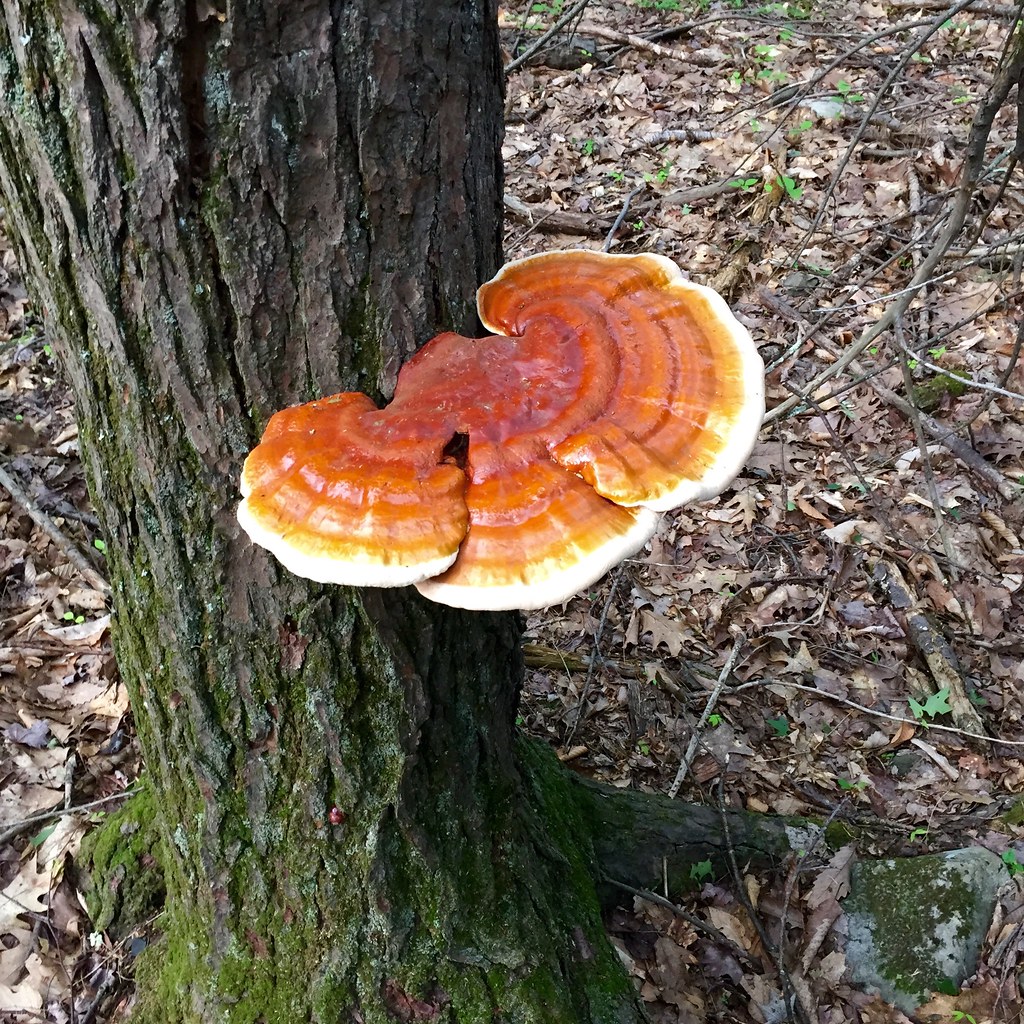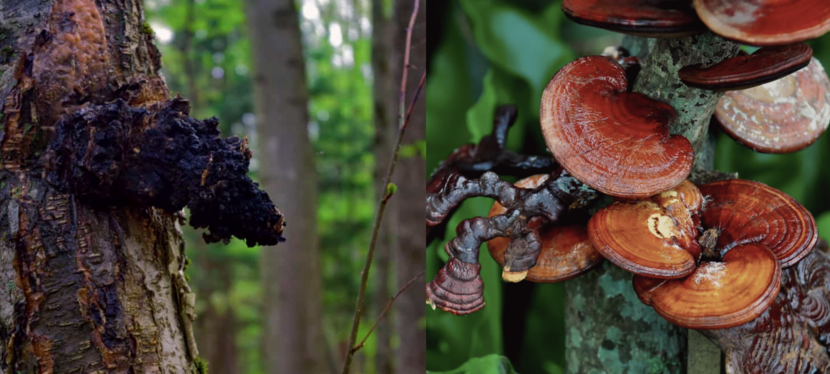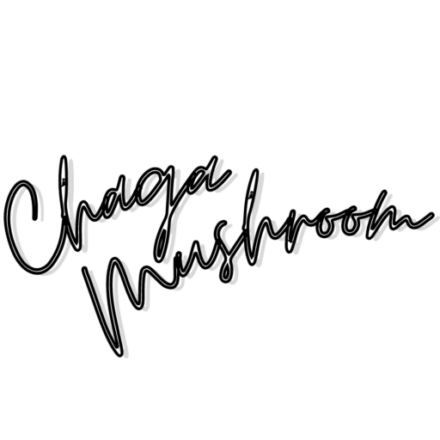Chaga and Reishi are both famous functional mushrooms, or perhaps you’ve heard them being called medicinal mushrooms. They are different by nature, like in taste and texture, how we can source them, as well as health-promoting qualities, yet both of them possess strong health benefits for the human body, primarily immune system enhancement and cancer treatment. So let’s go over the main elements of this Chaga vs Reishi duel.
Reishi Mushroom
Reishi mushrooms (Ganoderma Lucidum) are saprotrophic brackets, otherwise known as shelf fungi that feed on dead or dying hardwood stumps and trees. There are around 80 different species of Ganoderma Lucidum in the world, with several different names. Reishi is the most popular name for it in the West but there are many others.

In the East, where people have used these mushrooms for more than 2000 years in traditional medicine, they also have several names. The most common being Lingzhi aka the mushroom of immortality.
Reishi mushrooms contain polysaccharides, peptides, and triterpenoids, which may provide some of their health benefits. They also contain dietary fiber and various minerals, vitamins, and amino acids.
Reishi requires a hot water extraction method to make the beneficial components bioavailable to the human body – meaning the body is able to absorb the nutrients. People grind them into powder or use extracts to make supplements and other products.
A few benefits of Reishi Mushroom extracts:
- Boosts your immune system: Reishi extracts can modulate the development of immune cells in the human body, potentially reducing the risk of infectious diseases.
- Stabilizes mood: Reishi has been demonstrated to reduce anxiety in breast cancer patients, and researchers noted the absence of significant adverse effects (i.e. unwanted side effects). The pharmacology of this mood enhancing effect is not well-understood, but its safety suggests incorporating it into a diet comes with few side effects.
- Fights cancer: Medicinal mushrooms in general can combat the oxidative stress that leads to the development of cancer. A large scale epidemiological review found that while it should not be considered a first line treatment, reishi extracts may be safe and may help improve recovery in colorectal cancer patients.
Chaga Mushroom
Chaga is a polypore fungus that grows mainly on birch trees in cold climates. It grows on living trees, but it is parasitic. This means that the fungal mycelium enters the stem of a mature tree through a crack or a wound in the bark and then starts to absorb and synthesize healthy compounds that we, humans, will consume.

These mushrooms grow best on the outside of yellow and white birch trees. You can find Chaga mushrooms in abundance in the northern hemisphere where it has higher forest altitude, like the northern deciduous forests. Chaga thrives in cold, damp conditions, and has a great tolerance for surviving hard winters.
Natural healers and traditional medicine practitioners have been aware of this mushroom for centuries. Recent scientific studies demonstrate the effectiveness of Chaga in treating a number of diseases and afflictions. The Memorial Sloan Kettering Cancer Center lists the purported uses of Chaga as treating and preventing cancer, stimulating the immune system, reducing inflammation, and protecting the liver.
As mentioned before, these types of medicinal mushrooms are not edible in the standard method. Instead, their properties need to be extracted. The extraction requires prolonged simmering or soaking. This process makes the beneficial components bioavailable to the human body, which means the body can absorb the nutrients.
Related: Chaga Mushroom Extraction Methods
A few benefits of Chaga Mushroom extracts:
- Anti-Cancer: There are a variety of trials conducted that have looked at Chaga’s anti-cancer properties in treating colon cancer.
- Antioxidant: Chaga has been demonstrated to alleviate oxidative stress and “scavange” free radicals in the body.
- Anti-aging: While Chaga has not been clinically studied for its anti-aging properties, its powerful antioxidant profile is similar to other substances that have been demonstrated to turn back the clock on our metabolism.
- Reduced Inflammation: Countless studies have demonstrated Chaga’s ability to reduce inflammatory processes in the body by stopping the inflammatory cascade.
Should I eat Chaga or Reishi?
Both of the mushrooms can be strong boosters to a health regiment, but if you’re in a position where you’ll need to pick one, figure out which one of their health effects serves you best.
Chaga is a prized anti-cancer supplement that has been used for centuries, and Reishi is also a good choice for mood and immune system boosting. In many cases, however, Chaga may be preferred due to its wider range of studies conducted and famous health benefits.
Studies show that both Chaga and Reishi contain compounds that promote normal cellular turnover, as well as support normal immune and liver function.
Chaga VS Reishi accessibility
When it comes to Chaga, it’s important to remember that Chaga gets most of its nutritional value from its host – the Birch tree. The medicinal value of Chaga that has been harvested from trees other than birch may be entirely different. You should especially pay attention to your Chaga being wild harvested, as we’ve heard of Chaga grown in laboratories.
This has become a bigger issue over the last few years, as Chaga has gained more mainstream popularity. Business motivated corporates are trying to cut corners and grow Chaga faster and more efficiently indoors. This means that your bought Chaga possesses no health benefits but is most likely marketed as a health product.
Reishi on the other hand is one of the easiest medicinal mushrooms to grow. The easiest way to grow Reishi at home is to use a Reishi grow kit. You can buy these online from a supplier in your area. Grow kits come with an inoculated and colonized substrate block, meaning you can start the fruiting process as soon as you get your grow kit.
Key Takeaways Chaga VS Reishi
Chaga and Reishi are both considered functional mushrooms, full of many potentially beneficial health components for the human body. As much as they’re similar in nutritional content, they’re also very different in looks, how they grow, their taste, texture, and benefits.
Before picking one over another, figure out which processes in your body you’d like to support. If preferred the mushrooms can also be taken together, but make sure each of them is extracted using correct methods.
Reishi tends to be more widely available and often cheaper in price since it grows faster and in many different environments, as Chaga needs to be wildly harvested from a Birch tree and takes 20 years to mature.










